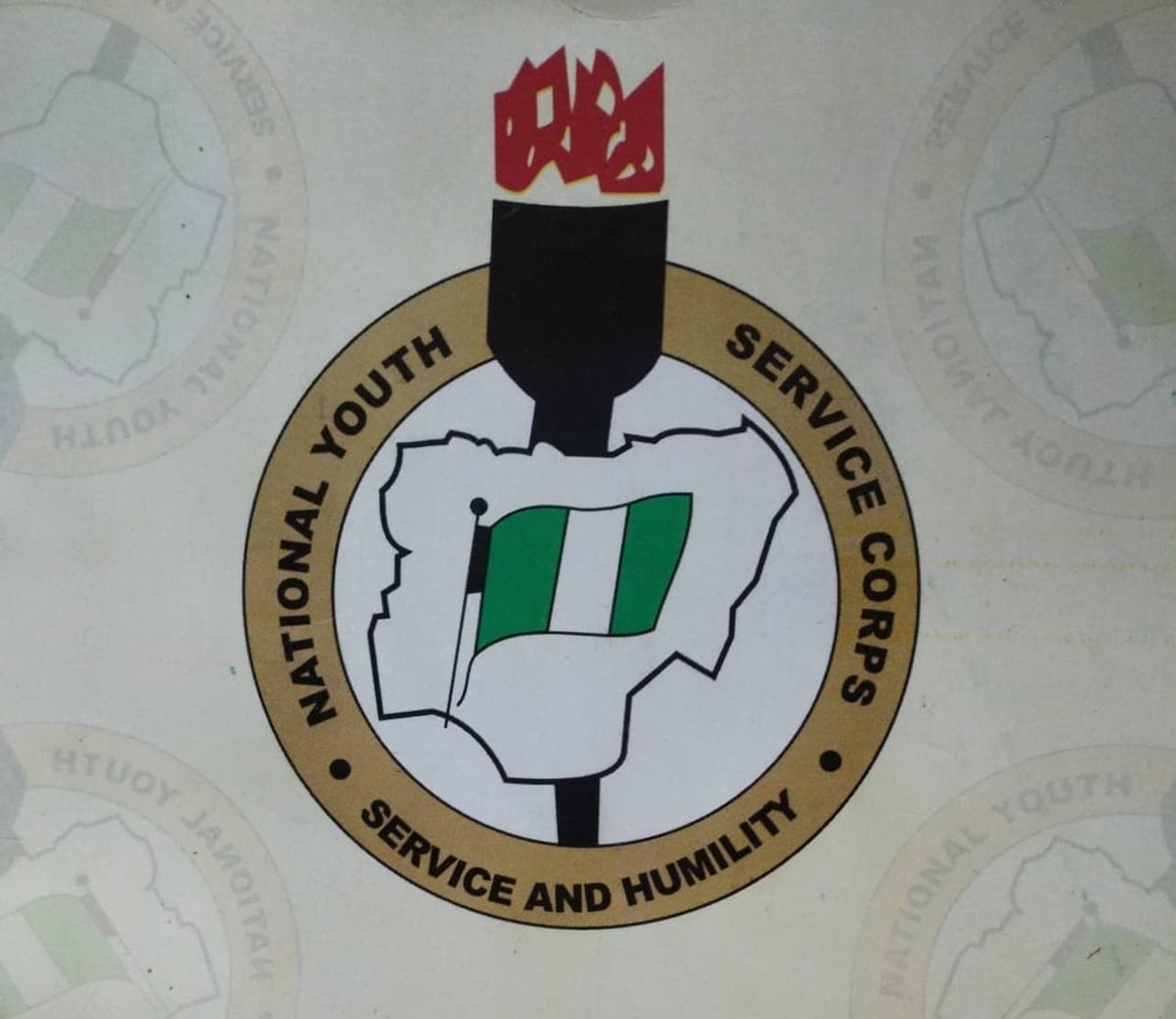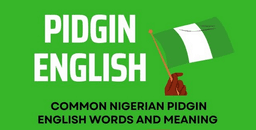Best Skills to Learn During NYSC, How to Learn Them, and How to Make Money from Them
Use your NYSC year to learn high-impact skills that boost employability and income. Practical guidance on digital, professional, life and soft skills, step-by-step learning plans, quick monetization ideas, and FAQs.


NYSC is not just about meeting obligations, it is one of the best windows in your life to learn marketable skills, experiment with side hustles, and build a career foundation. You have time, you have a new environment, and you usually have access to different people and small stipends.
If you plan it well, by the time you finish service you can be freelancing, running a microbusiness, or ready for higher-level work that pays better than typical entry jobs.
This long guide blends practical life skills, digital and tech skills, professional skills, and soft skills. For each skill I give you why it matters, what to learn during NYSC, how to start, a simple week-by-week learning plan you can follow, and ways to monetize quickly. Use it as your NYSC skills playbook.
How to pick which skill(s) to learn during NYSC
- Start with a goal. Do you want income during NYSC, a remote job after service, or a career switch? Pick skill(s) that map to that goal.
- Time and bandwidth. You may have PPA duties. Choose 1 primary skill and 1 complementary skill.
- Market fit. Look at local opportunities in your PPA, and online demand for freelance work.
- Cost to learn. Prioritize low-cost, high-return skills if your budget is tight.
- Passion and persistence. You will only keep going if you are interested, so pick something you can stick with for at least 8 to 12 weeks.
Fast checklist before you start
- Make a small weekly schedule of focused learning hours, even two hours daily.
- Create a simple portfolio folder from day one. Photos, clips, screenshots, and writeups matter.
- Use free resources first, then invest in one paid course or certificate that gives structure.
- Join at least one community or WhatsApp group for accountability.
- Plan small ways to monetize within 4 to 8 weeks, even if it is low paid, then scale.
Top skills to learn during NYSC, organized and actionable
I group skills into categories so you can pick a balanced stack.
A. Digital and Tech Skills
These give the biggest remote work and freelance leverage.
1. Digital Marketing
Why it matters: Businesses need customers, and digital marketing gets them online.
What to learn during NYSC: Social media marketing, basic SEO, content marketing, ads fundamentals (Facebook/Meta or Google Ads), email marketing, and analytics basics.
How to start: Free courses from platforms like Google Digital Garage, then practical work on a local business page.
Fast monetization: Manage a small business social account, do post design and copy, run a simple paid campaign for a market stall.
Basic timeline: 4 to 8 weeks to land small gigs, 3 months to be solid.
2. Web Development and Web Design
Why it matters: Every business needs a presence, and simple sites can be made cheap.
What to learn: HTML, CSS, responsive layout, WordPress, and a basic JavaScript library. For design, learn Figma basics.
How to start: Build a portfolio site, offer to make sites for local shops or NGOs. Use templates to speed delivery.
Monetize: One-off site builds, maintenance retainer, landing pages for campaigns.
Timeline: 6 to 12 weeks for beginner freelance readiness.
3. Coding and Software Basics
Why it matters: High demand, higher pay. Even basic scripting automates tasks.
What to learn: Python or JavaScript fundamentals, APIs, simple automation.
How to start: Follow a structured course, then build small tools or scripts that solve problems.
Monetize: Freelance micro-jobs, automation for small businesses, or internships.
Timeline: 8 to 16 weeks for entry freelancing.
4. Graphic Design and UI/UX
Why it matters: Visual communication sells, and designers are always needed.
What to learn: Canva to start, then Adobe/Affinity basics, typography, color theory, and Figma for UI.
How to start: Create social templates, local business flyers, or simple UX mockups.
Monetize: Social media design packages, logo jobs, landing page mockups.
Timeline: 4 to 8 weeks for freelancing basics.
5. Video Editing and Content Production
Why it matters: Short videos convert on social platforms, and many organizations want content.
What to learn: Smartphone filming, basic editing (CapCut, Premiere Rush, DaVinci Resolve), simple motion graphics.
How to start: Make short promo videos for your PPA, a local shop, or for camp events.
Monetize: Editing gigs, content packages for businesses, event highlight reels.
Timeline: 4 weeks to make simple edits, 8 to 12 weeks for polished work.
6. Data Analysis and Basic AI Literacy
Why it matters: Data skills are useful for research, projects, and business decisions. AI literacy helps you use tools effectively.
What to learn: Excel mastery, Google Sheets, basic SQL, introduction to Python pandas, and how to use AI assistants for productivity.
How to start: Analyze a small dataset for a local project or PPA report.
Monetize: Freelance data cleaning, simple dashboards for SMEs.
Timeline: 4 to 12 weeks depending on depth.
B. Financial, Business and Entrepreneurial Skills
7. Financial literacy and basic investing
Why it matters: Financial discipline and investing make your income and side-hustle work sustainable.
What to learn: Budgeting, emergency savings, basic investing principles, and simple exposure to stock or fixed-income investments.
How to start: Create a budget for your NYSC stipend, set a savings goal, and learn one investment channel.
Monetize: Use financial literacy to manage business cashflow, or offer budgeting help to friends.
Timeline: Ongoing learning. Actionable habits in 1 month.
8. Business and Entrepreneurship
Why it matters: NYSC is a safe place to pilot ideas with low cost and ready local markets.
What to learn: Business model basics, customer discovery, pricing, and lean marketing.
How to start: Launch a micro-service like catering, tutoring, or digital services. Learn by doing, not just by courses.
Monetize: Your business. Even small local services can grow quickly.
Timeline: Start immediately, refine over 3 months.
C. Professional and Creative Skills
9. Project Management
Why it matters: Employers value people who can deliver work on time and on budget.
What to learn: Task planning, milestones, basic tools like Trello or Asana, stakeholder communication.
How to start: Lead a CDC or PPA micro-project, or volunteer to coordinate an event.
Monetize: PM for small NGOs or events, freelance project coordination.
Timeline: 4 to 8 weeks to be useful.
10. Public Speaking and Communication
Why it matters: Communication opens doors, secures jobs, and sells ideas.
What to learn: Structure messages, storytelling, clarity, persuasion techniques. Practice on campus and in community meetings.
How to start: Run short talks, join local community events, or host information sessions.
Monetize: Training sessions, workshop facilitation, paid talks later.
Timeline: Ongoing, basic confidence in 4 to 6 weeks.
11. Writing and Content Creation
Why it matters: Writing is required for reports, applications, grants, and content marketing.
What to learn: Clear technical and business writing, content strategy, SEO basics for blogging.
How to start: Keep a weekly blog post, write reports for your PPA, or freelance for local websites.
Monetize: Freelance writing, content packages, grant proposal help.
Timeline: 4 to 12 weeks to build a portfolio.
12. Photography and Visual Storytelling
Why it matters: Visual assets are high-value for events, businesses and social media.
What to learn: Composition, lighting, smartphone photography hacks, basic editing.
How to start: Photograph PPA events, local business products, and then sell photos or photo packages.
Monetize: Event photography, product shoots, stock photos.
Timeline: 4 to 8 weeks to have saleable work.
D. Practical Life and Safety Skills
13. Basic First Aid and Emergency Response
Why it matters: You can save lives and be a community asset.
What to learn: CPR, wound care, emergency response steps, how to manage common injuries.
How to start: Take a basic certified course from recognized providers, practice in simulated conditions.
Monetize: Training and certification can help you become a community trainer or get first-aid jobs in events.
Timeline: 1 to 2 days for basics, certification over a weekend.
14. Driving and Road Safety
Why it matters: Driving increases independence and career opportunities.
What to learn: Practical driving lessons, theory, and obtaining a driver’s license.
How to start: Enroll in a local driving school and practice consistently.
Monetize: Driving for ride apps, delivery, or as a private driver.
Timeline: 1 to 3 months to learn and get licensed depending on practice.
15. Housekeeping and Basic Home Management
Why it matters: Independence, lower living costs, and life readiness.
What to learn: Cooking basic meals, laundry, basic repairs, budget management.
How to start: Practice daily, follow simple recipes, and handle household chores.
Monetize: Catering small events, home services if you want a small side hustle.
Timeline: Immediate, practical mastery in weeks.
E. Soft Skills and Interpersonal Abilities
16. Leadership and Teamwork
Why it matters: Lead projects, coordinate volunteers, and stand out in roles.
What to learn: Delegation, feedback, conflict resolution, motivating people.
How to start: Volunteer to lead a community project or coordinate an event.
Monetize: Leadership consulting for small groups, or better job placement because of proven leadership.
Timeline: Ongoing, visible results in one project term.
17. Salesmanship and Negotiation
Why it matters: Everyone sells something, from job interviews to business ideas.
What to learn: Value communication, closing techniques, basic negotiation tactics.
How to start: Practice selling small items or services in the camp or local market, and study short negotiation guides.
Monetize: Sales agent roles, affiliate selling, product distribution.
Timeline: 4 to 8 weeks to be confident.
18. Networking and Relationship Building
Why it matters: Your network will open doors that skills alone may not.
What to learn: Genuine relationship building, follow-up habits, and how to ask for help or introductions.
How to start: Build relationships at your PPA, attend local meetups, and keep digital contacts organized.
Monetize: Leads, referrals, business partnerships.
Timeline: Ongoing.
19. Basic Etiquette and Personal Grooming
Why it matters: Professionalism and presentation affect perceptions and opportunities.
What to learn: Workplace etiquette, table manners, punctuality, and consistent grooming habits.
How to start: Adopt daily grooming standards, practice punctuality, and observe etiquette role models.
Monetize: Confidence produces better job and client outcomes rather than direct income.
Timeline: Immediate habit building in 2 to 4 weeks.
20. Mental Health and Resilience
Why it matters: Stress management helps you learn and perform better.
What to learn: Basic stress reduction techniques, time for exercise, sleep hygiene, and peer support approaches.
How to start: Daily routines, small exercise goals, and a supportive peer group.
Timeline: Ongoing, better resilience in weeks.
Sample NYSC 12-month learning roadmap
This plan assumes you will focus on one primary skill and one complementary skill, with time allocated weekly.
Orientation month, weeks 1-4, focus on foundation
- Choose your primary skill, set SMART learning goals.
- Start a free course or playlist for the primary skill, 5 hours per week.
- Build a portfolio folder and a simple LinkedIn profile.
PPA deployment, months 2-6, focus on skill practice
- Daily practice, 1 to 2 hours on weekdays, 4 to 6 hours on weekends.
- Apply skill on a real problem at your PPA, volunteer to help with a small project.
- Monetize small jobs locally or online.
Community Development Service, months 6-8, focus on projects
- Lead a small CDC project using your new skill. Example: design posters, build a basic website for a community clinic, run a financial literacy workshop.
- Collect testimonials and portfolio evidence.
Second half of service, months 9-12, scale and polish
- Take one paid course or certification if affordable.
- Focus on freelancing platforms and local pitching.
- Start charging for your services at a realistic rate, and set a 3-month income goal.
How to learn efficiently, low-cost or free
- Start with high-quality free resources, then invest in one paid course that gives structure.
- Use YouTube for tutorials, follow structured playlists.
- Join free communities on Facebook/Telegram/WhatsApp for local tips and job leads.
- Build while you learn, project-based learning accelerates progress.
- Keep a tiny budget for data and one paid micro-course if it removes friction.
Fast monetization strategies for corps members
- Local business packages. Offer to run a market stall’s social media for a small monthly fee.
- Event services. Photo, video, or design services for weddings, birthdays, and church events.
- Tutoring. Teach school subjects, coding basics, or exam prep.
- Micro freelancing. Short jobs on Fiverr, Upwork, or local job boards.
- Work for your PPA. Offer to improve their digital presence or administrative processes for a small fee.
- Workshops. Run a paid one-day workshop, for example basic digital marketing for traders.
Beginner toolkit: apps and free resources to start right now
- General learning: YouTube, Coursera (audit), edX (audit), freeCodeCamp, Khan Academy.
- Digital marketing: Google Digital Garage, Facebook Blueprint.
- Web dev: freeCodeCamp, W3Schools, WordPress tutorials.
- Design: Canva, Figma community resources, YouTube tutorials.
- Video editing: CapCut, DaVinci Resolve tutorials on YouTube.
- First aid: Local Red Cross or certified weekend courses.
- Productivity: Google Calendar, Trello, Notion.
- Freelance platforms: Fiverr, Upwork, PeoplePerHour, and local marketplaces.
How to balance PPA work and learning
- Treat skill learning as non-negotiable micro-sessions, for example 30 to 60 minutes twice daily.
- Use free time after work or early mornings to practice.
- Be transparent with peers if you need to set aside time for interviews or client work.
- Combine PPA tasks with learning, for instance digitize PPA records if you are learning web or data skills.
FAQs
Q. What skill will make the most money quickly during NYSC?
A. Digital marketing, web development, and video editing often lead to the quickest small paid gigs. For very fast cash, offer editing or design packages for events and local businesses.
Q. Can I learn more than one skill during NYSC?
A. Yes, but be strategic. Pick one primary skill to reach competency and one complementary skill to broaden your marketability.
Q. How much time should I study each day?
A. Aim for 1 to 2 hours on weekdays and 3 to 6 hours on weekends. Consistency beats cramming.
Q. Do certificates matter?
A. Certificates can help, but the portfolio and demonstrated results matter more. A simple strong portfolio will beat many certificates.
Q. I have very little money, how can I start?
A. Use free resources, practice on real local problems, barter services for testimonials, and gradually invest earnings into paid courses.
Q. How do I get clients while in camp or at my PPA?
A. Start with your network, approach local shops, churches, and NGOs. Offer a low initial price or a pilot project, get testimonials, then increase rates.
Q. Is it okay to start a business during NYSC?
A. Yes, it is a great time to test ideas with low overhead. Use your camp network and local community for early customers.
Q. Which skills are evergreen?
A. Communication, project management, financial literacy, and digital skills like web development and marketing are evergreen because businesses always need them.
Final words
NYSC is a unique, time-limited window. With discipline, a focused plan, and small consistent steps you can finish service with marketable skills, some income streams, and a stronger resume.
Pick a primary skill, build a portfolio, apply what you learn in your PPA and community projects, and keep iterating.




